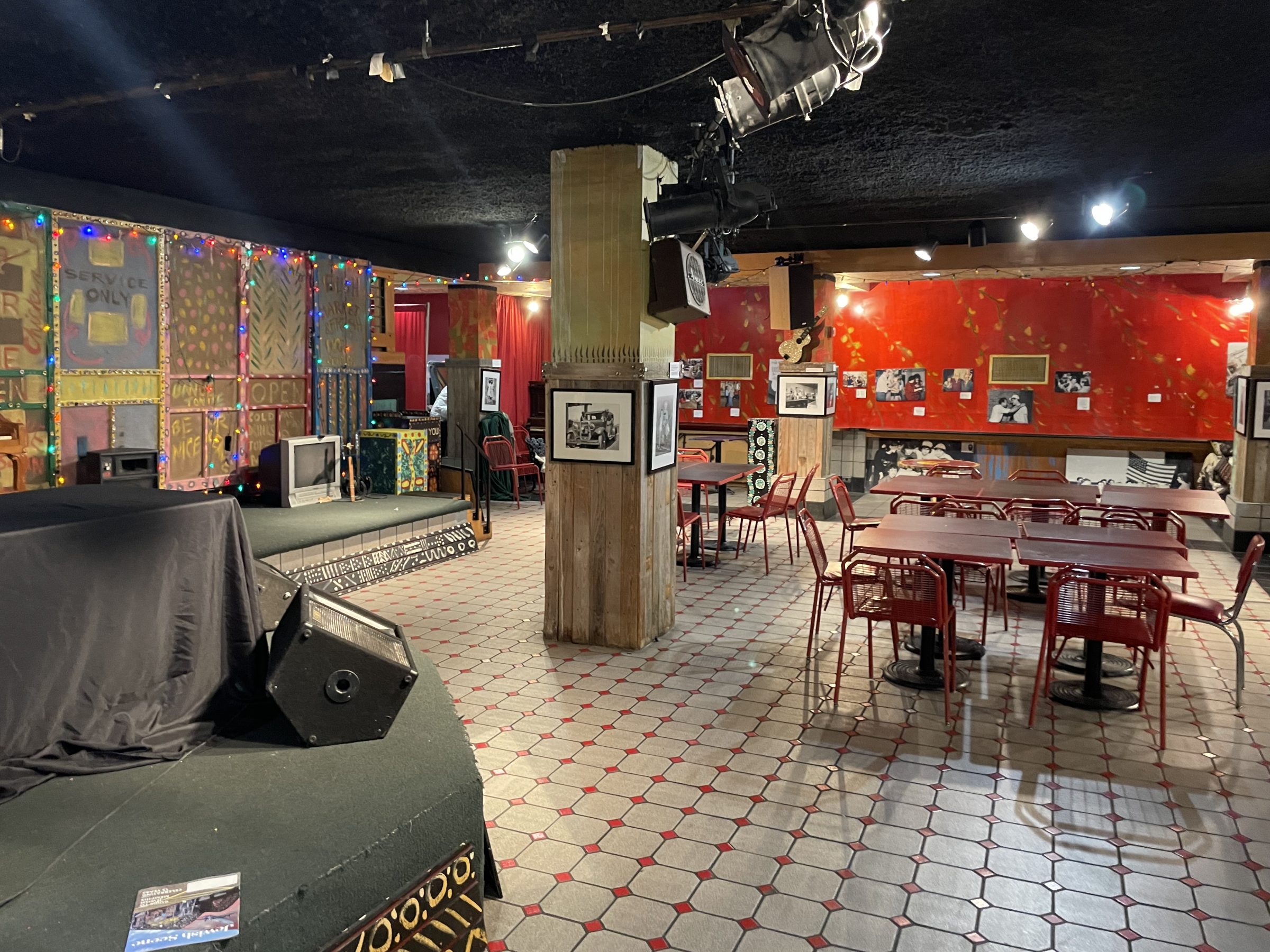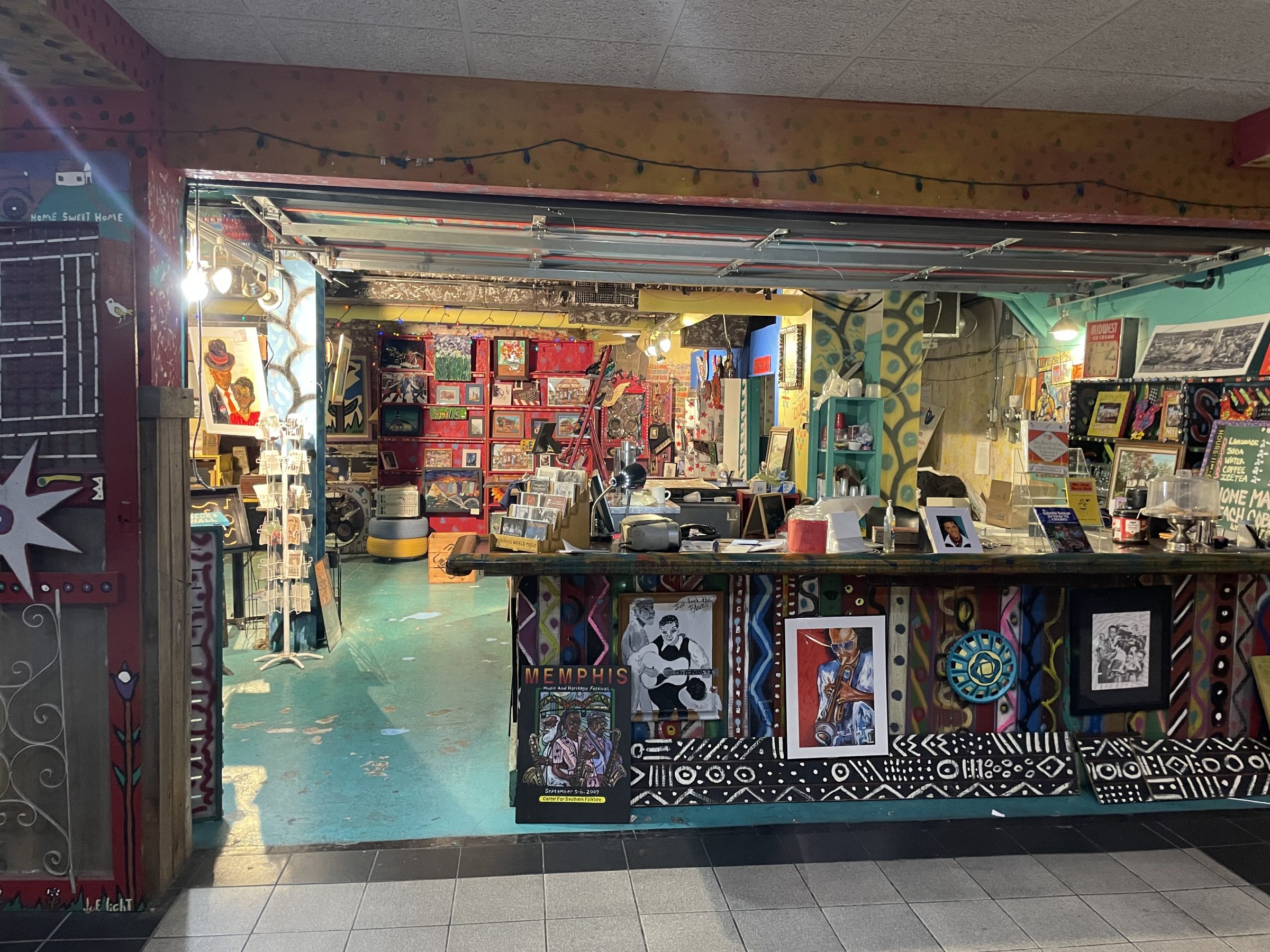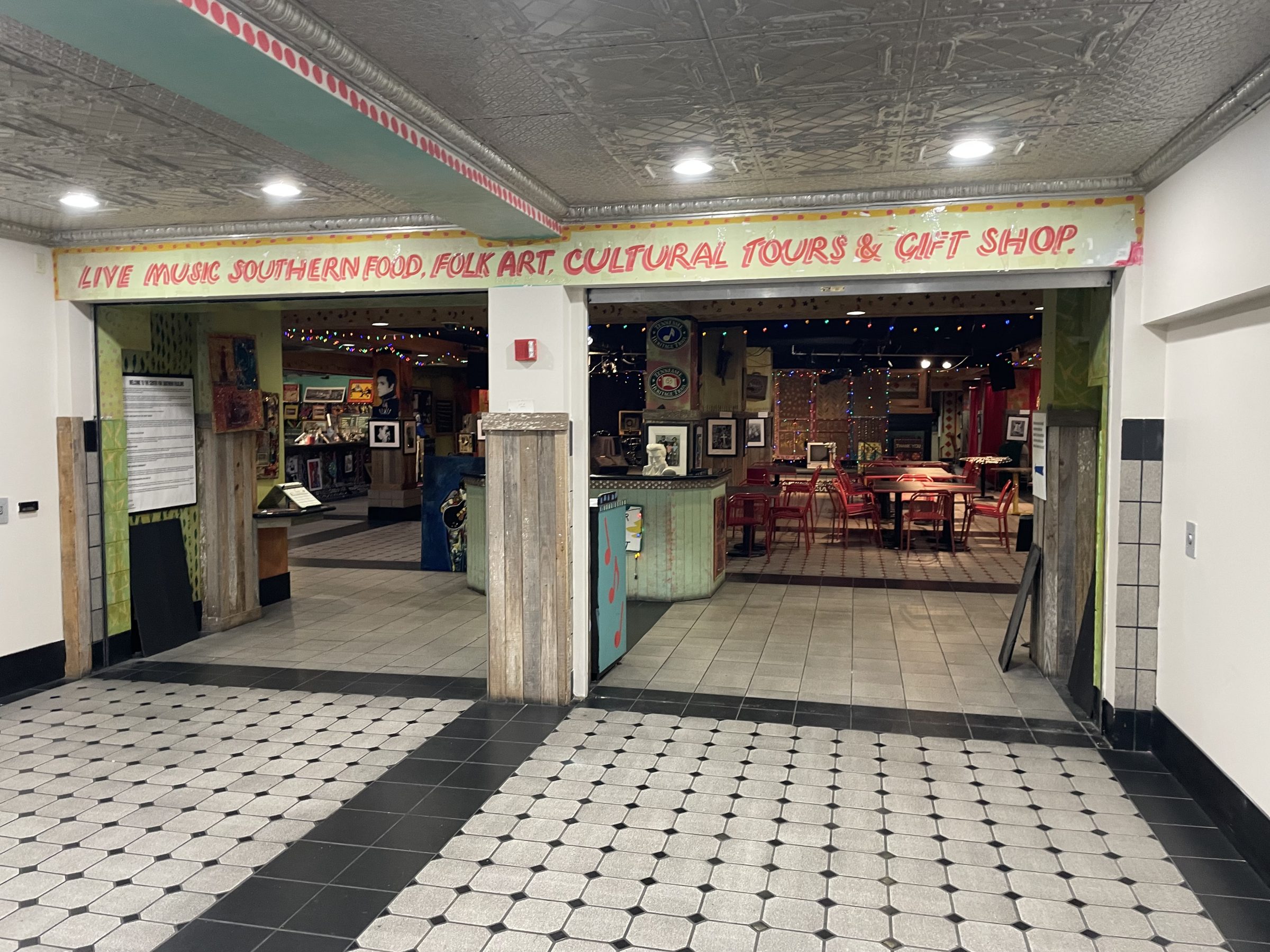The Center for Southern Folklore is still open. It’s just not visible from the street anymore.
“We’re located behind the Belz Museum of Asian and Judaic Art,” says Mark Hayden, the center’s archives and store manager. “We’re at 119 South Main, Suite 106.”
They’ve been at that location, but they used to have additional space that had an entrance on Main Street. “The Peanut Shoppe (at 121 South Main Street) was our old store.”
The center downsized last summer, Hayden says. Now, everything is together, he says.
“Everything is back here,” Hayden says. “The museum is on one side and the store is on the other. I’ve always called it a museum. I remember Judy always called it a ‘cultural center.’”
Hayden was referring to executive producer Judy Peiser, who, along with William R. Ferris, were the center’s co-founders. They managed to move everything from the front to the back area.
“We moved it all up here,” Hayden says. “Actually, it looks pretty good in here. But people don’t know we’re back here. We’ve got a Facebook and an Instagram account where I post things. And I get a fairly good following. But I’m not getting the crowds coming in.”

The center currently is open between 9:30 a.m. and 5 p.m. Tuesday, Thursday, and Friday, and 1 p.m. to 6 p.m. on Sunday. “We hope to open up our music schedule real soon.”
Live music traditionally was featured on Saturdays and Sundays. “Mostly Saturday night. We haven’t gotten our volunteer schedule yet. Once we do that, we will, hopefully, feature music on weekends.”
They originally had two stages: one in front and one in the back area, where they now operate. The old one in front was for the weekend music shows.
“The main purpose of the stage where I am right now was for the larger touring shows. Like Kate Campbell would come. Or, we would open it when we had our folklife festival — the Music and Heritage Festival.
“I would say that the stage that we have here is maybe one and a half times the size of the old one. Which isn’t a huge stage, but it’s larger than what we had.”
The festival was a Labor-Day-weekend tradition until a few years years ago. “We hope to bring it back, but with our volunteerism and pandemic we’ve kind of been on hold for three years.
Center for Southern Folklore used to operate a restaurant, Hayden says. “At one time we served breakfast and lunch, but we no longer serve that. Now, we do have cookies and coffee.”

The public can take advantage of the museum’s wealth of Memphis history. “We’ve got a southernfolklore.com web site, an online store that kind of details anything from CDs, and DVDs, and artwork, and books, and records. I call it ‘uniquely Memphis.’ Everything is local. And it’s submitted by local people.”
As for the center’s extensive archives, Hayden says, “I would say it’s the best. We’ve got a great archives.”
In addition to photos, written material, and video, and film footage on blues players and other musicians, the center also has material on local Jewish history and the Civil Rights Movement in Memphis, Hayden says.
“It was gathered by Judy. I don’t know the whereabouts and background behind everything because I’ve only been here about 10 or 12 years. The archives started, I think, in the mid ‘70s. The whole organization started as an archive.”
But, he says, “It just morphed into a rental area.”
The public can access the archives, Hayden says. “We’re not online, but they can come in. And if there is something they’re interested in, they can look through our archives.
“They can look at it. It’s free. If they want something scanned, that will cost something. As a nonprofit, we need to pay our bills.”
Hayden recently had “a number of emails” from people looking for information. “We get a lot of interest in the history of Beale Street.
“We work with the Jewish Historical Society. They wanted to know Jewish businessmen on Beale Street.”
“We have transcripts from Beale Street and from Holocaust survivors. And just different people that worked downtown.”
Musically, he says, “There was one company from California that wanted information on Rufus Thomas.”
The Center for Southern Folklore has “just grown from what it originally was. We’ve moved a few times. It started out in Judy’s home, moved to Beale Street, then to the New Daisy. Then, we had our own location. And now we’re back here behind the Belz Museum.”

The center also is available to be rented for events, including weddings, symposiums, and bar mitzvahs, Hayden says.
Peiser once wrote down the purpose of the Center for Southern Folklore: “To preserve the unique culture of the south through the music and the legend and people.
“I think it’s a valuable commodity,” Hayden says.
For more information, call (901) 525-3655
